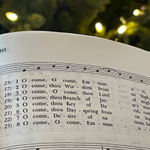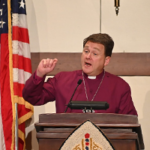
My Journey in the Episcopal Church
as a
Black Woman
(and a bishop's daughter)
by Cynthia Primo Martin
I am not sure when I realized I was, and would be forever, labeled as a preacher’s kid (PK).

Quite frankly, I thought I was just a regular kid. The fact that I attended most church services, programs, and events at St. Simon’s Church in Rochester, New York, seemed normal at the time. My father worked a hundred hours a day saving people (and spent so little time at home, for which I took him to task for when I was in college), and my mother performed the roles of altar guild convener/flower arranger, Sunday School and Bible School teacher, organizer and leader of our Girls’ Friendly Society chapter, cooking for and inviting single, elderly and/or wayward members to Sunday dinner, etc.
Early on, I knew there were high expectations of me. Of course, I was to avoid embarrassing behaviors that might impact my father’s position and the family reputation.
A question did remain in my mind through childhood as to who the real Rev. Primo was. Although theological degrees hung on my dad’s office walls and he wore the white collar (and purple shirt later on), my mother seemed to take his job and her role very seriously. And she was strict.
When my father had served as suffragan bishop of the diocese of Chicago and we moved back to Delaware for him to serve as interim bishop of this diocese, I remember Jim Gilliam, Jr., referring to my mother as “Mrs. Bishop.” How apt an appellation!
As I was growing up, I wondered why my father’s church had all Black membership while other diocesan Episcopal churches were all white. This trend continued as my father received calls to other dioceses. My dad’s churches were located in inner cities in predominantly Black neighborhoods while other churches were primarily located in the suburbs. Interestingly enough, though, the Black membership of my dad’s churches did not reside in the inner city but rather outside the city. Parishioners commuted to the city on Sunday and for other weekly activities. I learned that most Black Episcopalians held professional positions as educators, doctors, lawyers, administrators, and government workers; and they may have had Caribbean or other such heritage in their family lines.

Grandfather Primo was a Guyanan-born Episcopal priest. Most summers, we traveled south from Rochester, New York, to visit him and my Jamaican-born grandmother in Albany, Georgia. They lived next to the church in a low-income neighborhood; members primarily were from other neighborhoods.

I juggled two sets of friends growing up: my Black Episcopal friends whom I saw mostly on Saturdays and Sundays; and the white kids I attended school with during the week.
My parents were big proponents of education and chose to live in the best school districts. When we moved from the rectory apartment near St. Simon’s to a neighborhood just outside city limits, the all-white neighborhood was not very accepting of our choice. The neighbors picketed and harassed my parents but to no avail; we were there to stay. As it turns out, my family became well-loved. Tears flowed when my father took the call to St. Matthew’s, Wilmington, Delaware in 1964.
We moved to the existing rectory in Wilmington, but my father was anxious to buy his own home and build equity. My parents fared better in Wilmington; an exceptional high school, P.S. duPont, was located in a primarily Jewish neighborhood, and we bought a home there. An incident occurred later where my mom had to play a role. When a Black member of St. Matthew’s wanted to buy a house down the street from us, she was told it was no longer for sale. My mom (who looked white) showed up at the front door to inquire about the house, and suddenly the house was for sale! My mother remained the buyer representative until the parishioner had successfully purchased the home.
If you read my dad’s autobiography, The Making of a Black Bishop, you will learn more about the challenges he and our family faced. My parents were excellent role models, had great faith in God, and lived exemplary lives regardless of less than pleasant circumstances.
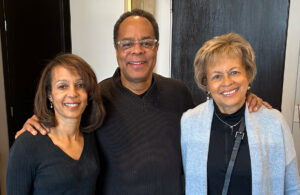
Because of their willingness to stand for what they believed in, my siblings and I learned trust in God, strength of character, the difference between right and wrong, and the importance of community.
My sister, Dr. Susan Primo Davis, 12 years younger than I am, reflects: “Growing up as a preacher’s kid, I always felt self-conscious and on display. I am the youngest of my siblings and was the only child left in the house at one point, I felt a bit isolated and unsure of what I was supposed to do or not to do! It seemed all eyes were on me at times, and I didn’t want to disappoint. While that pressure of expectation seemed to always be there, I don’t think it was unique to me, and I would have not changed a thing. A firm grounding in faith has followed me my entire life, and I can always speak with pride that I am a preacher’s (and a bishop’s!) kid, which I believe is truly special. Being an Episcopalian or Anglican is relatively uncommon among American Blacks, and people often seem surprised when I reveal that fact, especially in the South where I reside. As an Episcopalian, I do love the formality and deep tradition of the service.” I agree with my sister.
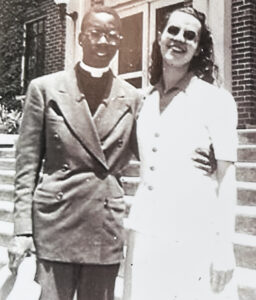
As I mentioned earlier, although she identified as Black, my mom looked white. Indeed, she was a product of the Bahamas and had white blood. She often heard conversations on subjects of race when she was mistaken for white. She waited a bit and identified herself. Looks of shock ended those conversations!
My father relates instances when the two of them visited churches for the first time in the Chicago diocese. If she was not with him when entering churches where she was unknown, she was ushered to a seat before people realized she was the bishop’s wife. Some of these incidents were humorous, many were not. As a bishop, he faced unchristian behavior. But his life philosophy and deep faith directed him to turn the other cheek. I am not sure I could have done the same.
I was truly impacted by the tragic story of my older sister’s passing. Olivia Wilhelmina was born in Rutherfordton, North Carolina where my father served a number of local churches. When my mother reached the Black hospital in labor, tests were completed and it was found my sister and mother had the RH blood incompatibility problem: Olivia had positive blood, mom was negative. The nearby hospital serving the white community could have remedied this situation by providing the needed shots to address this issue, but my parents were denied access. The white collar did not impress them; my sister died an hour after her birth.
I am grateful to be a cradle Black Episcopalian. Many Black Episcopal churches have witnessed a move from very Anglican forms of worship (fancy liturgy, words sung instead of spoken, long services, incense, at every service) to more diverse liturgies and musical experiences.
Because the three Primo children had musical ability — my instrument was the piano and later organ; my brother and sister excelled in trumpet and flute, respectively — I accompanied them both in many musical performances. When my father visited other churches with limited music programs, he was known to bring his own musicians — his children!
In conclusion, I am proud to be a PK. All three Primo children have stayed active in our local churches.
This is one PK who is looking to the future of our church, our nation, our world, and who hopes for the best.

Note from editor: As a young girl, Cynthia was also a member of the Girls’ Friendly Society (GFS). This society was an international, religious organization for girls and young women from the ages of 7-21 of any race, religion, or nationality. Affiliated with the Episcopal Church as a parish-based program that began to help young women workers in early industrial America, the GFS evolved into an organization to provide opportunities to girls through service to others, worship, study, and recreation. Information for the society dates from 1860 to 2010, but primarily it relates to the years 1916-1998. The GFS hat in this image was Cynthia’s hat.
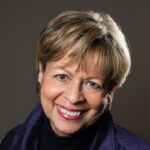
Cynthia Primo Martin is a retired nonprofit executive specializing in agency management, fund development, and marketing. She chaired the Quintin E. Primo, Jr., Lecture Series (PLS), established in memory of her father. Cynthia was the founder of the Trustees of Color (TOC) initiative whose mission was to establish, implement, and maintain a sustainable process to ensure that Delaware’s nonprofit boards are inclusive of people of color.


